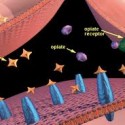How Florida Treatment Centers Treat Heroin Addiction
Much like the rest of the country, the rate of drug use in Florida remains an issue of public concern. With each passing year, access to various types of drugs has become easier for people of all ages. Access to heroin is no different. Being addicted to heroin is one of the most difficult periods a person can experience in his or her lifetime. The drug’s highly addictive qualities make it all but impossible to stop using without professional care and support.
As hard as it may be to beat a heroin addiction, it is a treatable condition. Florida treatment centers have the training and experience required to help a person recover from a heroin addiction. After receiving needed treatment, a person learns to control his or her addiction and live a healthy, productive life.
Detoxification Treatment

Florida treatment centers use special treatment plans to help treat heroin addiction.
Detoxification treatment is a necessary first step towards recovery for any type of addiction. For heroin addictions in particular, detoxification treatment entails a more intensive approach. Heroin’s effects on the body and brain can be long-lasting; even in cases where a person has stopped using. The body has grown dependent on heroin to function leaving bodily processes in a weakened and imbalanced state. As a result, stopping heroin use brings on severe withdrawal symptoms that make it difficult to not start using again.
Florida treatment centers offer the type of medical care needed to ease a person through difficult withdrawal symptoms. In this way, a person has a better chance of getting off heroin and making it through the recovery process. As detoxification is only a first step, Florida treatment centers also provide ongoing treatment in the form of inpatient and outpatient programs.
Substitution Therapy
For someone who’s been using heroin for a long time, the body may become so dependent on heroin’s effects as to require a more gradual treatment approach. Florida treatment centers use what’s known as substitution therapy to treat severe heroin addictions. According to Semel Institute, substitution therapy involves substituting medications that mimic heroin’s effects but pose little to no risk of addiction. Medications commonly used in substitution therapy include:
- Methadone
- Naloxone
- Buprenorphine
Florida treatment centers use these drugs to help gradually eliminate a person’s withdrawal symptoms. For some people, medication doses can be tapered down over time while others may need to continue receiving medication treatments on a long-term basis. The severity of the addiction determines how long substitution therapy is needed.
Behavioral
Like most other addictions, heroin addicts have developed both a physical and a psychological addiction to the drug. Treating the physical component without addressing the mindset and behaviors that sustain the addiction sets a person up for failure. Florida treatment centers use behavioral therapy approaches to help recovering addicts learn to cope with daily life without the need for heroin.
Depending on the program, therapy approaches used by Florida treatment centers include contingency management and cognitive-behavioral therapy. Contingency management therapy uses a voucher reward system as a way to reinforce positive behaviors while cognitive-behavioral therapy helps a person deal with the underlying feelings and issues that drive addiction behaviors.
Resources:
Semel Institute
http://www.semel.ucla.edu/dual-diagnosis-program/Conditions_Treated/Opiate_Addictions

